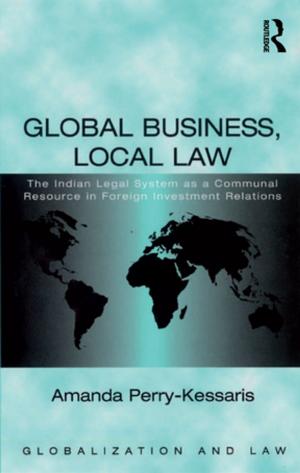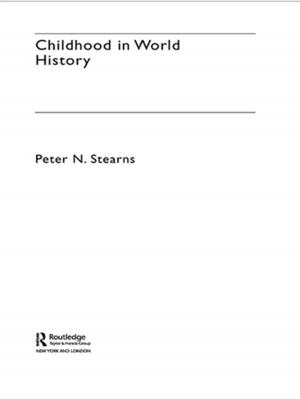| Author: | ISBN: | 9781317265108 | |
| Publisher: | Taylor and Francis | Publication: | March 22, 2016 |
| Imprint: | Routledge | Language: | English |
| Author: | |
| ISBN: | 9781317265108 |
| Publisher: | Taylor and Francis |
| Publication: | March 22, 2016 |
| Imprint: | Routledge |
| Language: | English |
The Middle East, defined here as extending from Morocco to Iran and Turkey to Sudan, lies at the crossroads of three continents – Africa, Asia and Europe. With the largest reserves of petroleum in the world its importance is well beyond its physical size and population. Rapid urban growth has radically transformed Middle Eastern society in recent decades, but the associated problems are incompletely understood. This volume, first published in 1980, highlights some of the major issues of Middle Eastern urbanisation and provides a comprehensive statement about the current position of research. Urban origins and the nature of urban growth are discussed to provide a background to considerations of migration, employment, housing and retailing. The contributors suggest that planning strategies have hitherto proved inadequate with small towns being largely overlooked, historic quarters rapidly disappearing and water in short supply. Future research into all these problem areas is considered essential, but the research must be coordinated and utilised. Concentrating on practical problems, achievements and challenges for research, the contributions in this book, specially commissioned from active researchers in the field, will prove a valuable guide to recent ideas and developments in the Middle East.
The Middle East, defined here as extending from Morocco to Iran and Turkey to Sudan, lies at the crossroads of three continents – Africa, Asia and Europe. With the largest reserves of petroleum in the world its importance is well beyond its physical size and population. Rapid urban growth has radically transformed Middle Eastern society in recent decades, but the associated problems are incompletely understood. This volume, first published in 1980, highlights some of the major issues of Middle Eastern urbanisation and provides a comprehensive statement about the current position of research. Urban origins and the nature of urban growth are discussed to provide a background to considerations of migration, employment, housing and retailing. The contributors suggest that planning strategies have hitherto proved inadequate with small towns being largely overlooked, historic quarters rapidly disappearing and water in short supply. Future research into all these problem areas is considered essential, but the research must be coordinated and utilised. Concentrating on practical problems, achievements and challenges for research, the contributions in this book, specially commissioned from active researchers in the field, will prove a valuable guide to recent ideas and developments in the Middle East.















